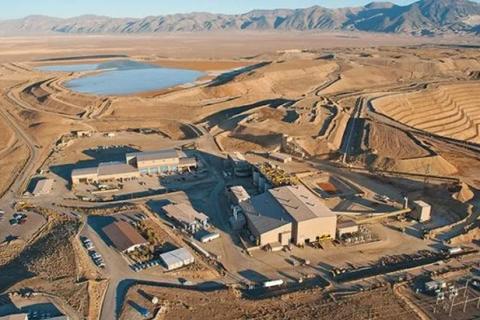The last uncontacted Indians south of the Amazon basin are being squeezed from all sides. With their last refuge being gradually overrun, they have nowhere left to hide. But if the Paraguayan government acts, the Indians can keep hold of their land and avoid the diseases that threaten to decimate their population.
Bulletin articles
Over the past 15 years, the Colina municipal authorities backing tourism development have granted lands bordering the De la Vela Mangrove. The consequent building of housing and shops has implied that these lands were filled with rubble at the expense of the ecosystem and the space necessary for mangrove growth.
The concept of "sustainability" is increasingly being emptied of any content, particularly by those who carry out basically unsustainable activities. Among them, mention needs to be made of an activity which is --by definition-- unsustainable: mining. It can be argued that mining is necessary to provide people with a number of goods, but it can certainly not be argued that it can ever be sustainable, being as it is based on the extraction of non-renewable resources.
Mining is the series of activities referring to the discovery and extraction of minerals lying under the surface of the earth. Minerals can be metal (such as gold and copper) or non-metal (such as coal, asbestos and gravel). Metals are mixed with many other elements, but occasionally large quantities of certain metals can be found concentrated in a relatively small area - the deposit - from which one or more metals can be mined with financial benefit.
There is now compelling evidence that mining severely limits a nation's ability to sustain economic growth (even within the narrow definitions usually adhered to by nation states). This is a surprising "discovery" for those who think that "riches" in the ground are unfailingly translated into money in the bank. But for those who adopt an anti-colonialist analysis of capital accumulation, the fundamental reason for the discrepancy is not hard to find. Zaire, Bolivia and Sierra Leone are not merely "poor" -they have been ruthlessly impoverished over hundreds of years.
A growing number of new corporate security operations around the world link former intelligence officers, standing armies, and death squad veterans. They go into battle for new bosses: the mineral industries.
While mining has negative impacts on all those who live in the mining communities in general and those who are affected by the mining operations, there are distinct impacts and added burdens on women.
The differentiated impacts can be begun to be understood in concrete situations, such as that faced by a Dayak woman affected by a mine owned by the company PT-IMK in Indonesia.
Mining companies were shocked by a 'Recommendation' passed by the World Conservation Congress in Amman in 2002, which called for an end to oil, mining and gas extraction from all protected areas in IUCN categories I, II, III and IV ('strict nature reserves', 'wilderness areas', 'national parks', 'natural monuments' and 'habitat management areas'). Many NGOs were equally surprised by the mining industries' reaction: what did the companies think these areas were meant to be protected from if not from unsustainable activities like mining?
A new report from the Forest Peoples Programme and the TebTebba Foundation calls on the World Bank to drop its support for oil, gas and mining. The report 'Extracting Promises: Indigenous Peoples, Extractive Industries and the World Bank' was compiled as a contribution to the World Bank's Extractive Industries Review (EIR) (the full report and associated case studies can all be found on: http://www.forestpeoples.gn.apc.org/Briefings/Private%20sector/
eir_internat_workshop_synthesis_rep_eng_may03.htm ).
Mining is a short-term activity with long-term effects. There can be no doubt that when it takes place in forest zones, it is a factor of degradation. It is calculated that, together with oil prospecting, mining is threatening 38% of the last stretches of the world's primary forests.
While the bombs still fall, the military tanks roll on, thousands of people die, the probable victors are already sharing out the loot. That is what this war was all about. Saddam and his mythical weapons of mass destruction were no more than a not very credible excuse. The whole world knew and still knows it. Both the oil and the lucrative contracts to reconstruct what they themselves destroyed are already in "good" hands.
The United Nations Forum on Forests (UNFF) will be meeting in Geneva from 26 May to 6 June. NGOs and IPOs have expressed some of their concerns to the UNFF secretariat in April this year (see http://www.wrm.org.uy/alerts/april03.html), concluding that "if these points are not addressed soon, the UNFF will lose its credibility with civil society groups and indigenous peoples and subsequently with governments."

